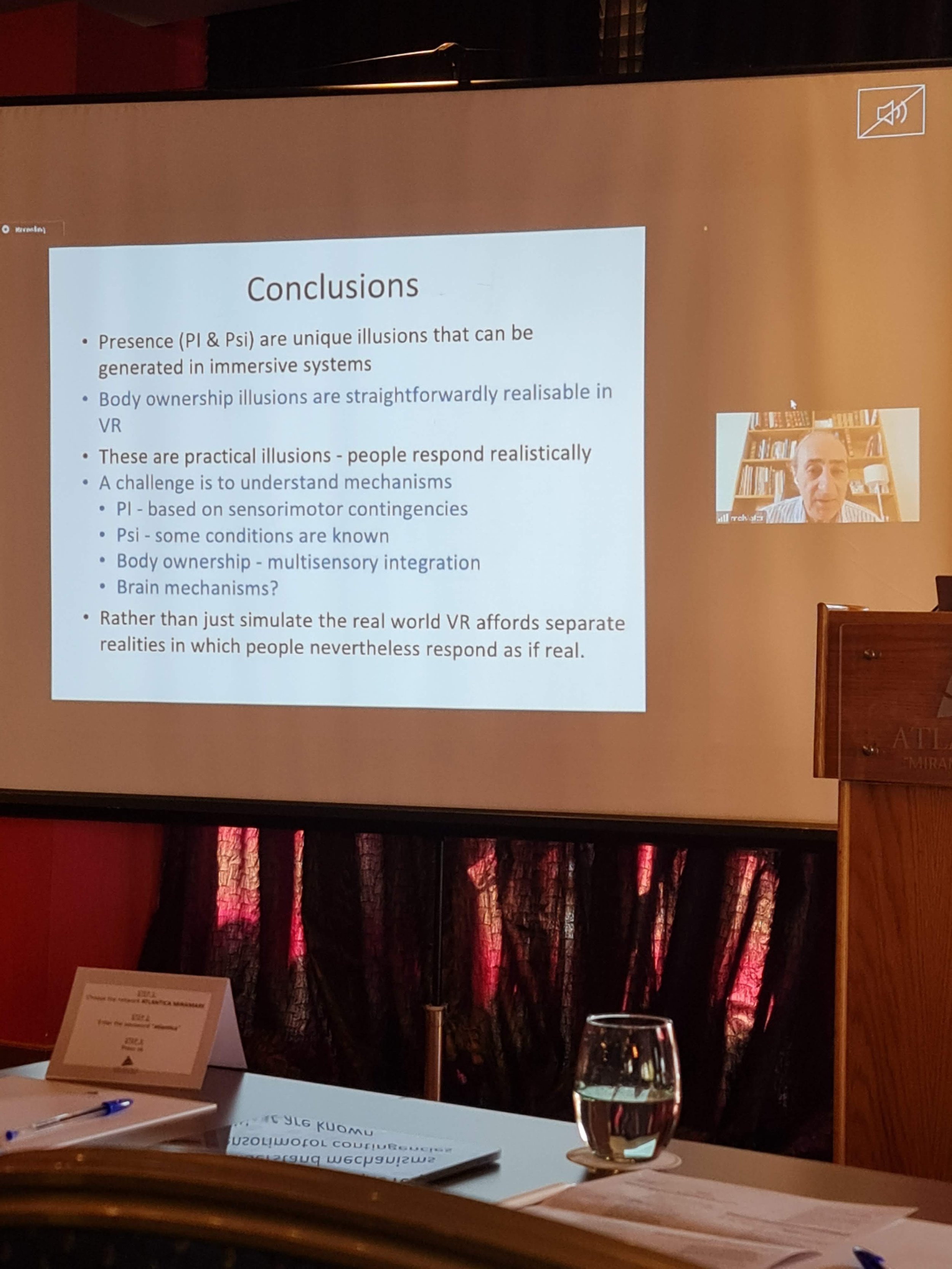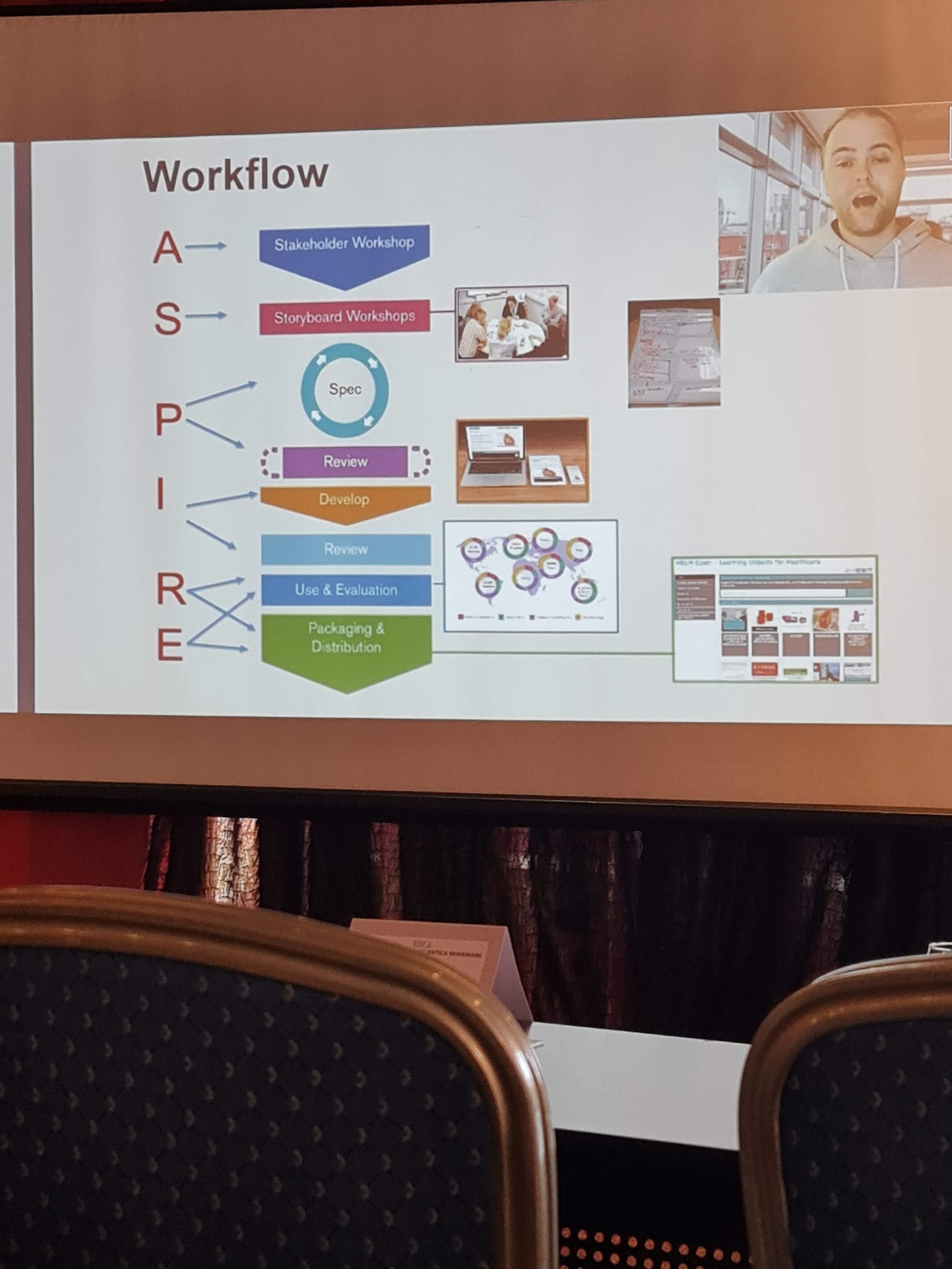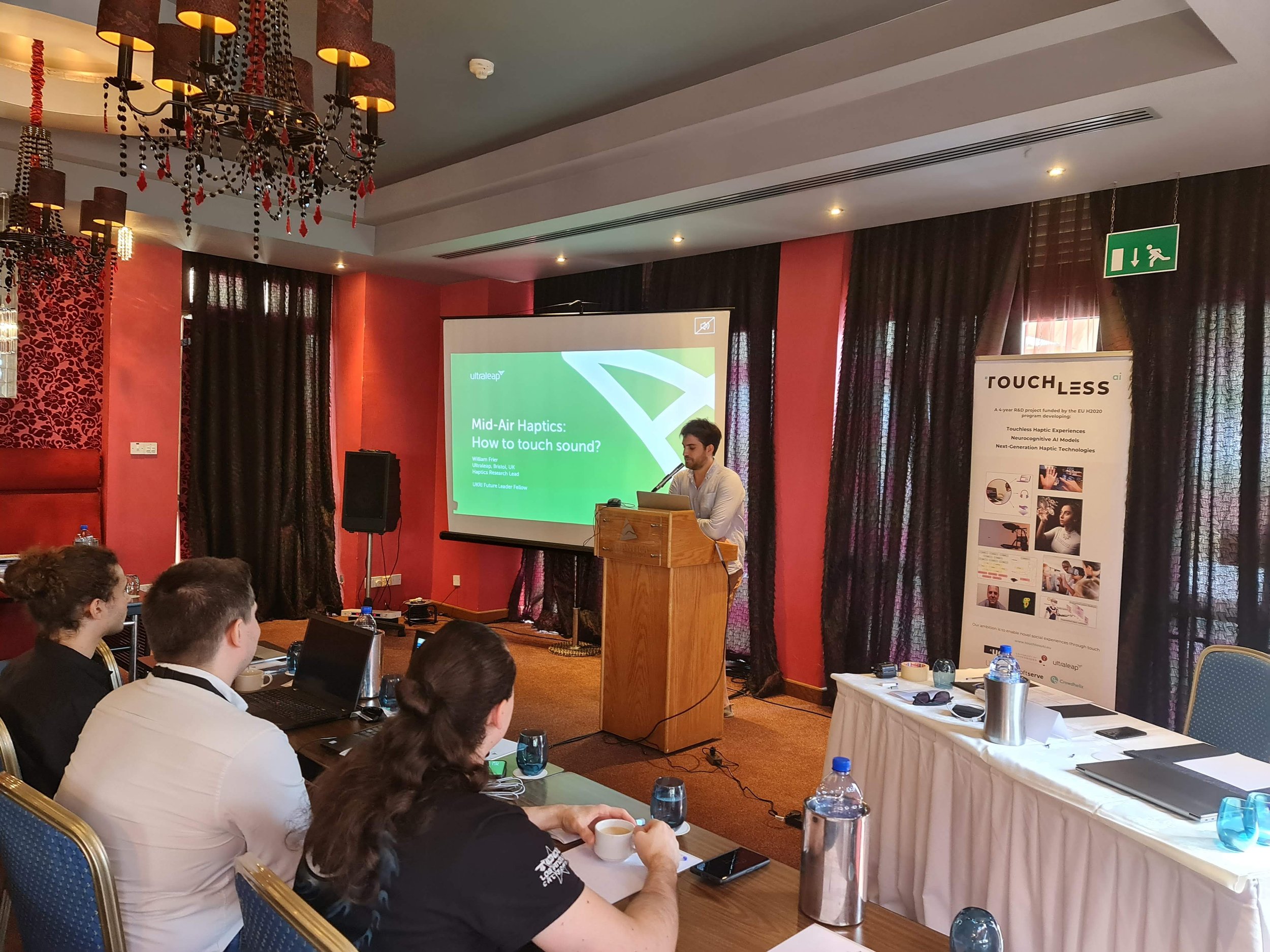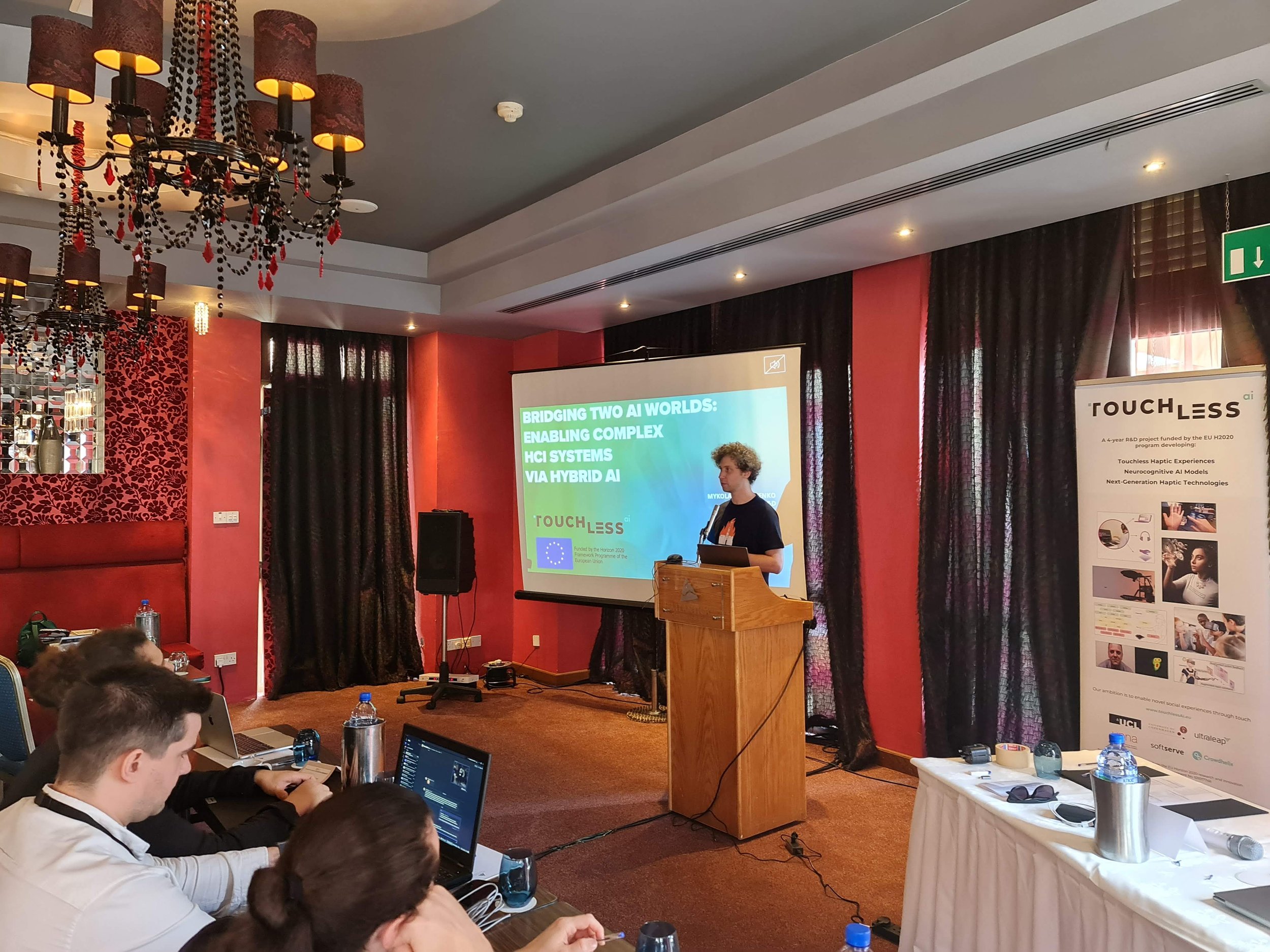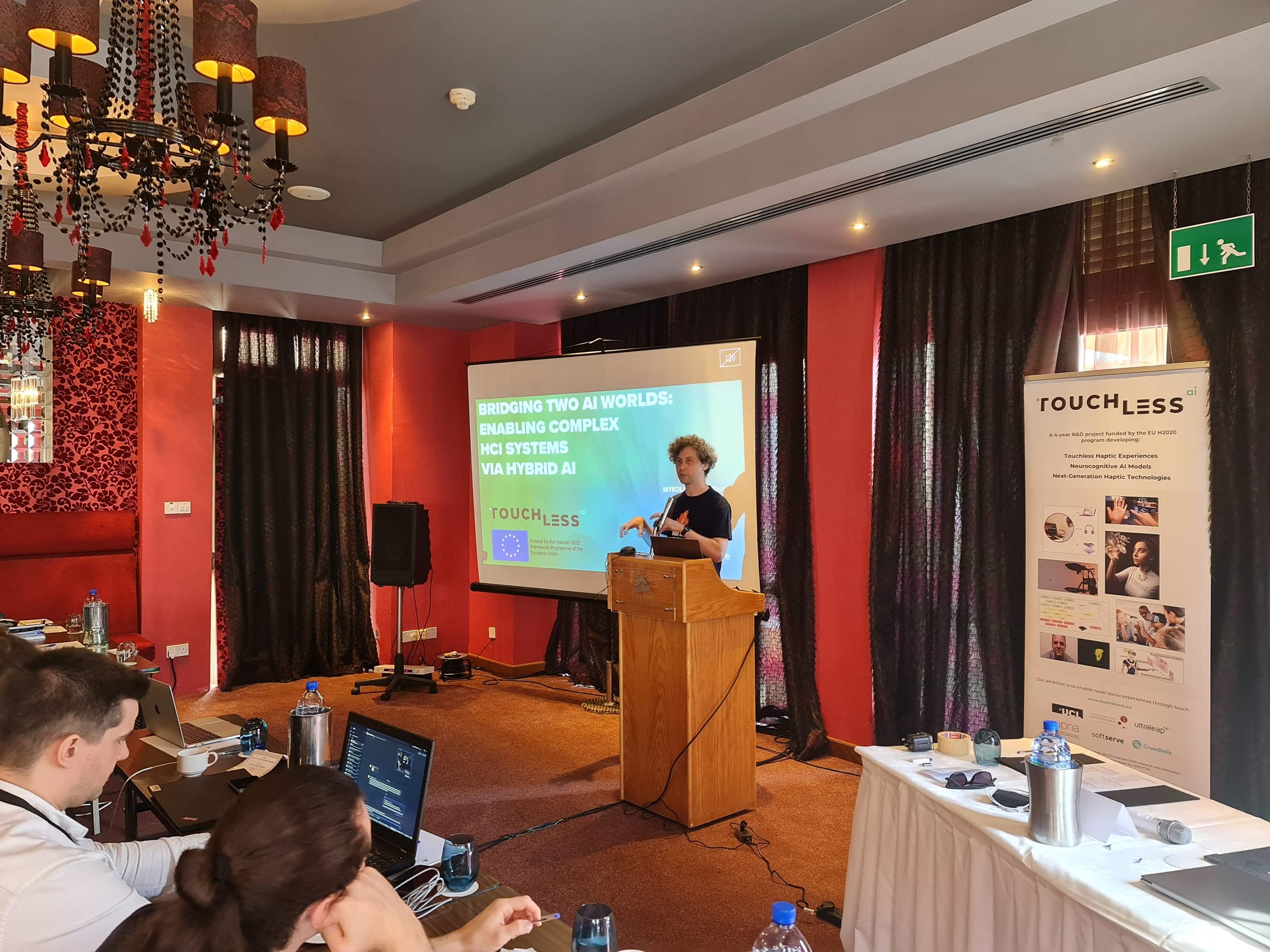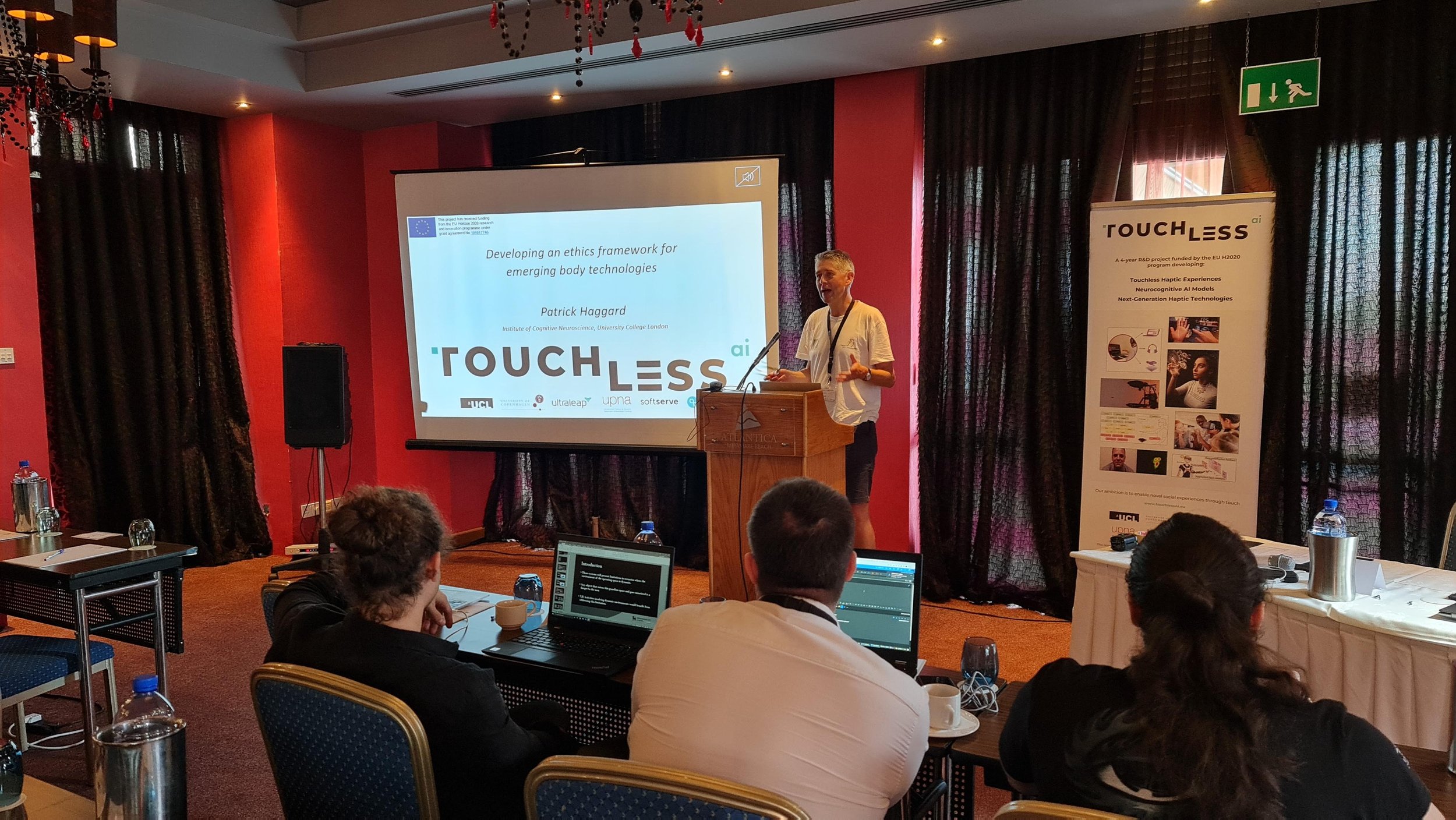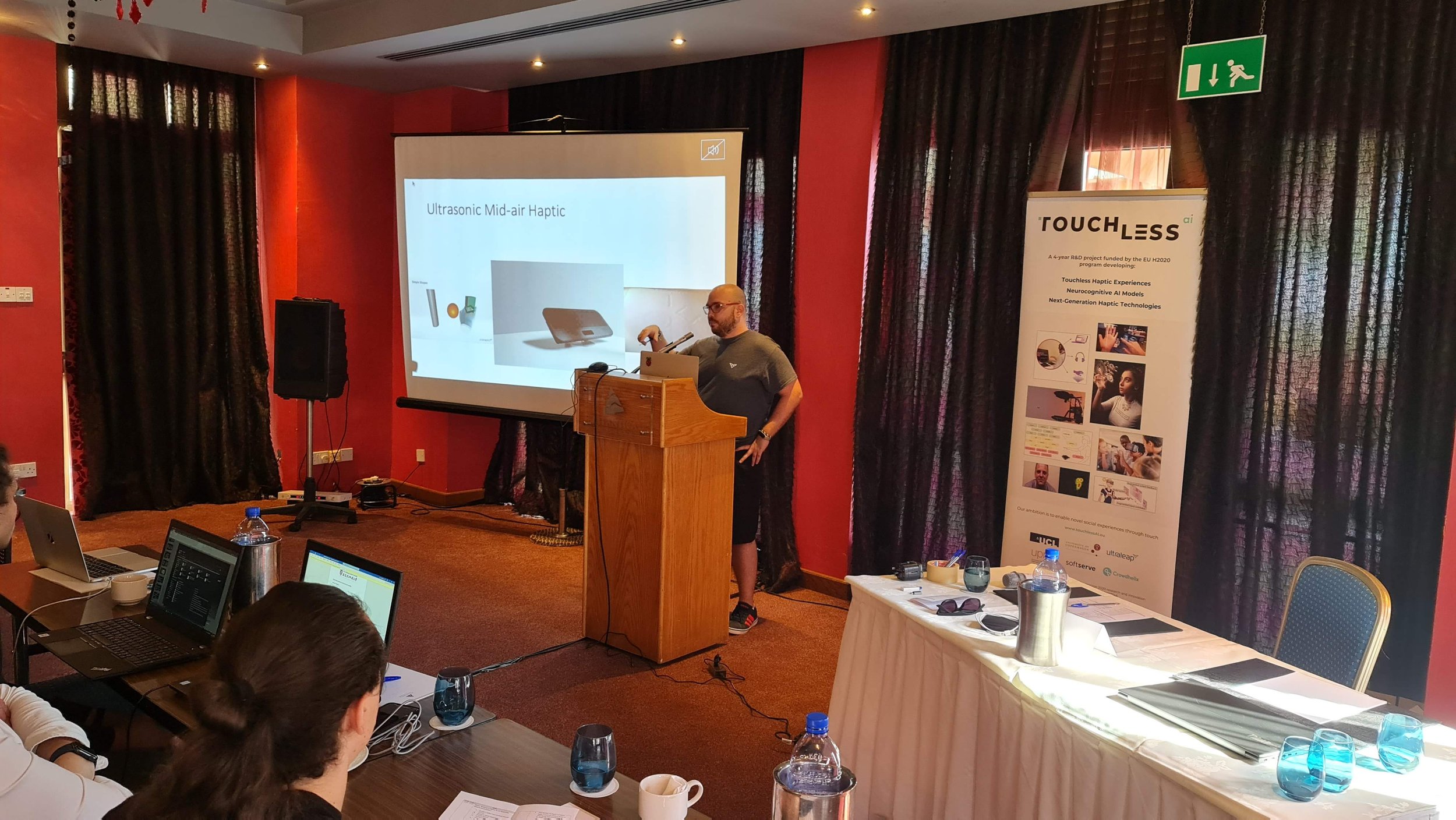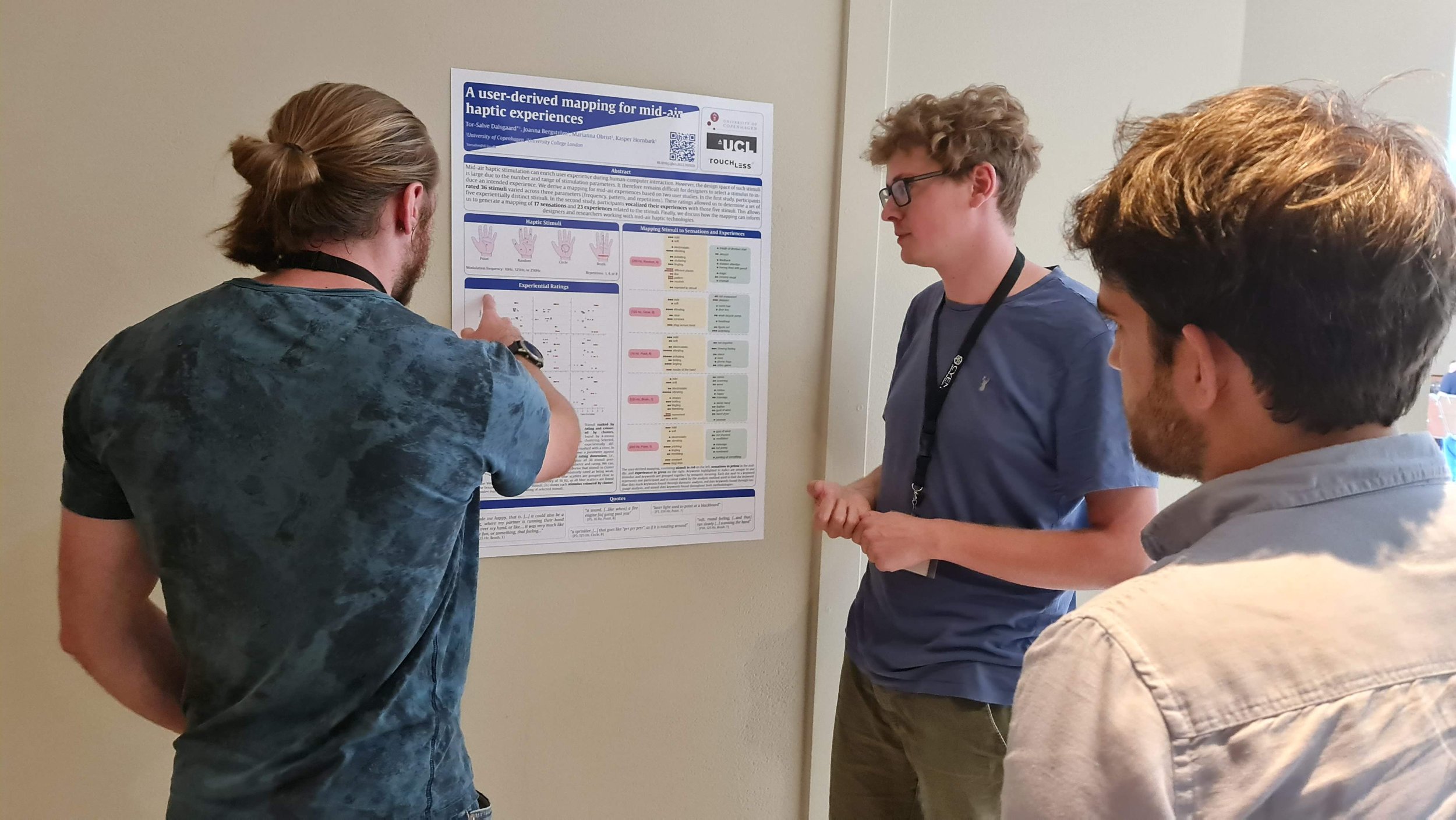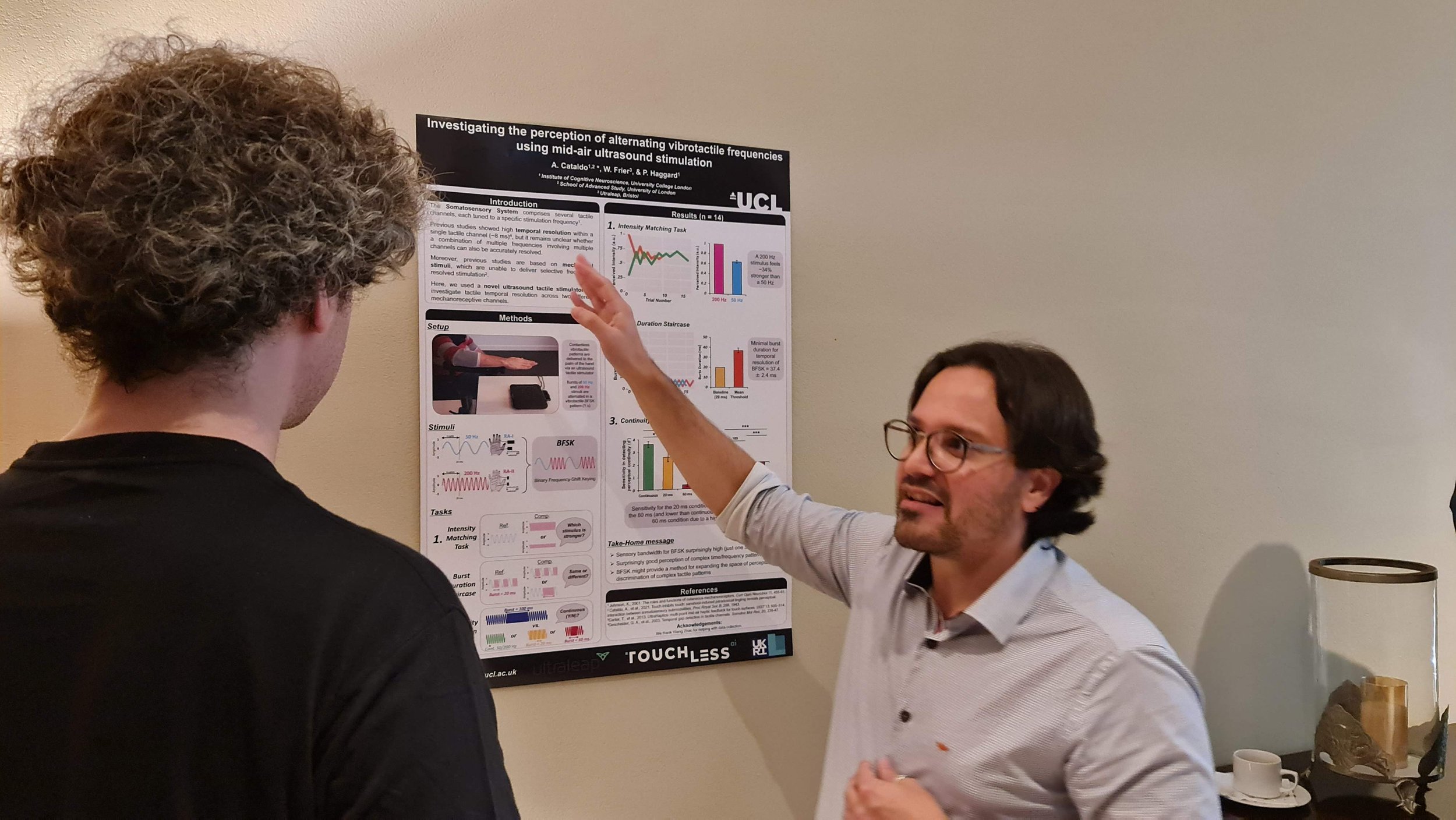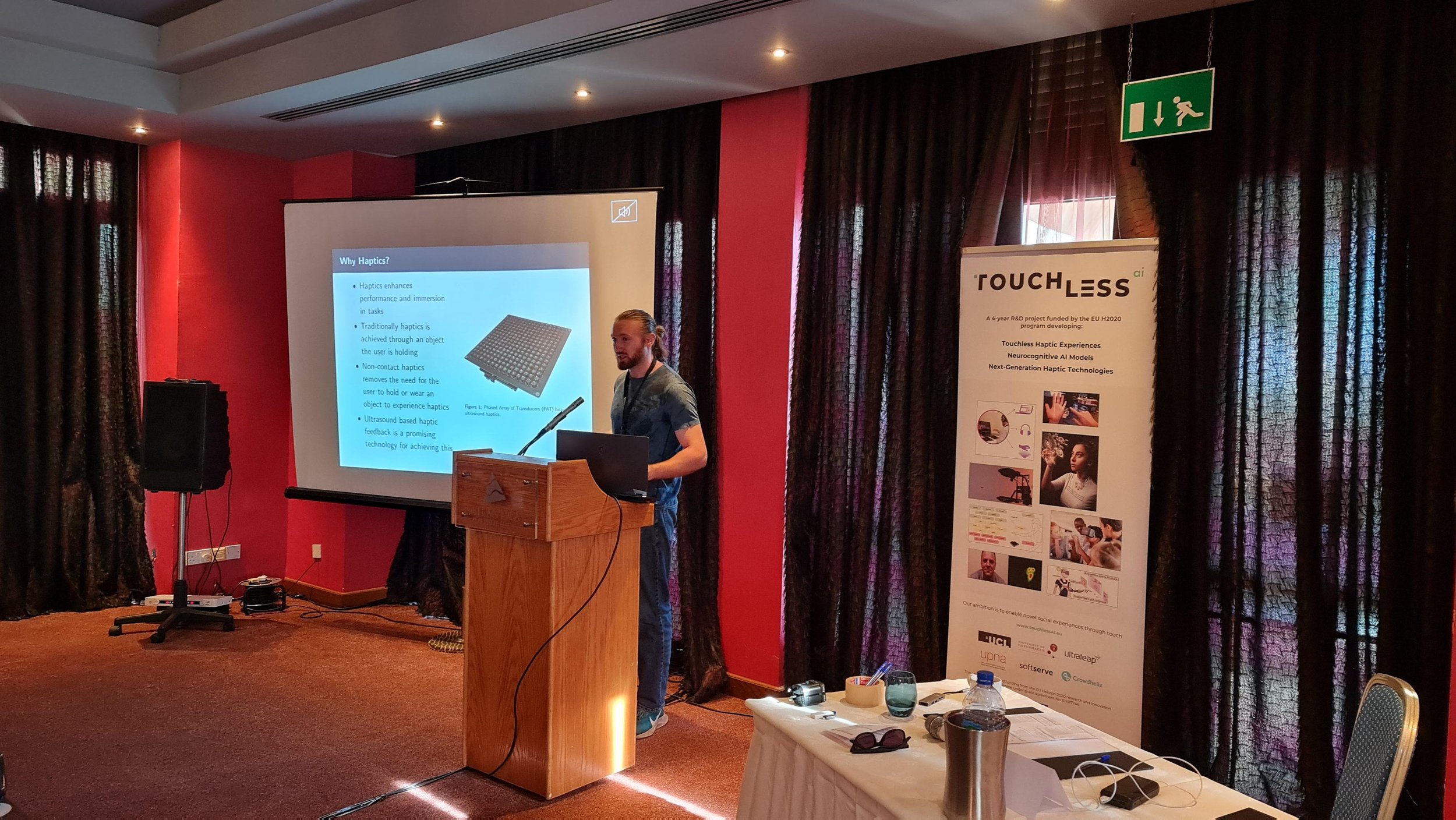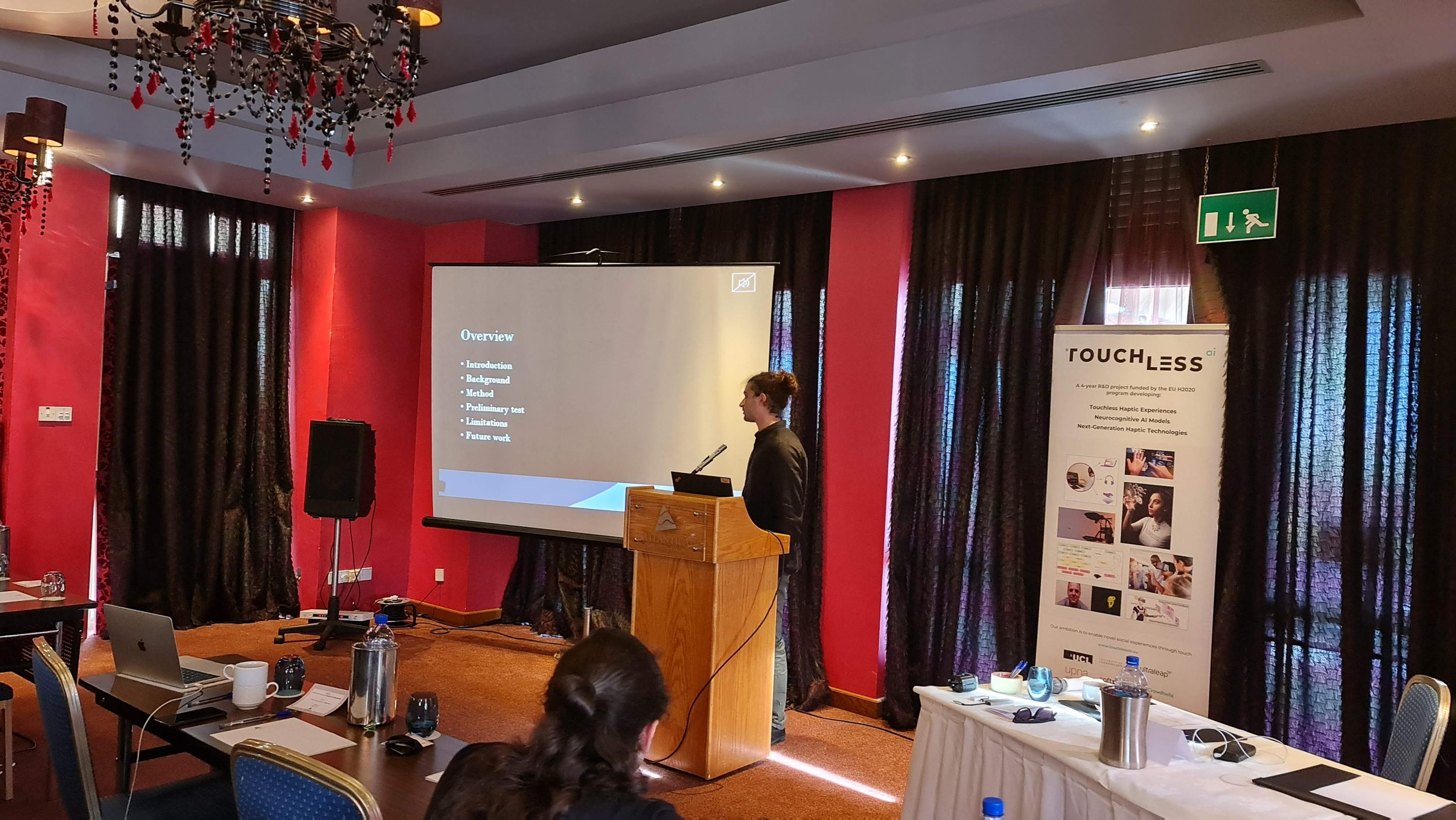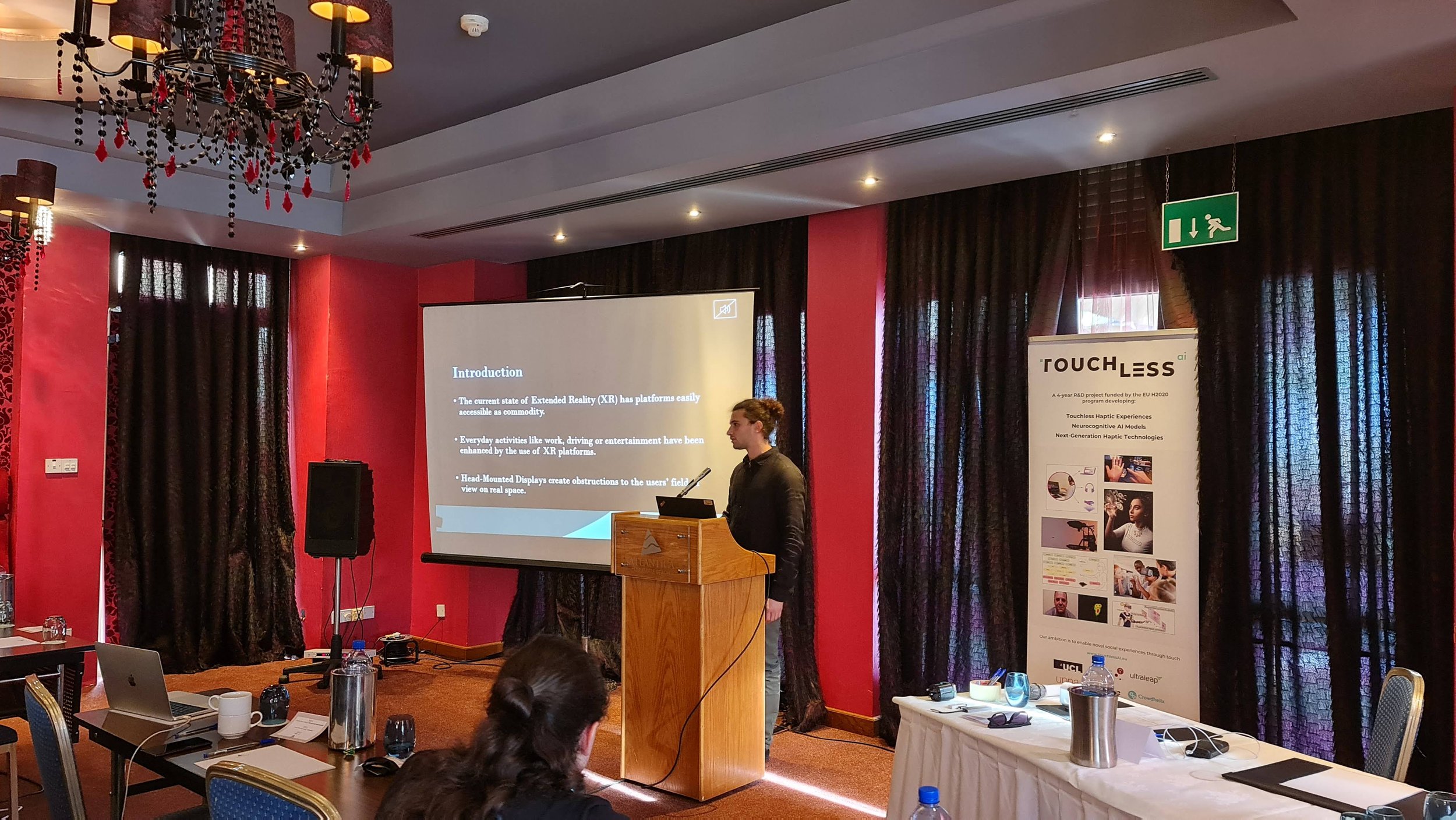WORKSHOP
Haptics, AI, & Responsible Research and Innovation (RRI)
when and where
5th of October 2022, Atlantica Miramare Beach Hotel Limassol, Cyprus
This workshop is part of the IMET 2022 conference
Workshop Organizer: Orestis Georgiou, Head of R&D Partnerships at Ultraleap.
Intro
The Touchless project is developing next-generation contactless haptic technologies infused with neurocognitive models and artificial intelligence (AI). Our aim is to enable computer systems to create and enhance tactile experiences. In developing such powerful tools, capable of altering ones affective, social, and cognitive behaviors, one should be conscious of unforeseen risks and technology misuses. Therefore, in addition to novel touchless haptic technologies, we are also developing the first ethics framework for theorizing ethical considerations around remote, contactless interactions with the human body and the self and using this framework to pioneer RRI practices beyond haptics. This workshop will present our efforts in these 3 directions (Haptics, AI, and RRI).
Agenda
13:30 – 15:10 Session: Workshop on Haptics, AI, and Responsible Research and Innovation I
Keynote 1: William Frier (Ultraleap) (Keynote 30 mins) “Mid-air haptics: How to convey touch with sound”
Keynote 2: Mykola Maksymenko (SoftServe) (Keynote 20 mins) “Hybrid AI and emerging technologies“
Keynote 3: Patrick Haggard (UCL) (Keynote 30 mins) “Developing an ethics framework for emerging body technologies”
Rafael Morales, Orestis Georgiou, Asier Marzo and William Frier. (Workshop paper 1 – 10 mins) “Comparison of Experiment and Simulation of Ultrasonic Mid-air Haptic Forces”
Petro Franchuk and Tetiana Yezerska. (Workshop paper 2 – 10 mins) “Improved Touchless Respiratory Rate Sensing”
15:10 – 15:40 Coffee Break and Poster Session
Martin Maunsbach, Kasper Hornbæk, Hasti Sefi , “Whole-Hand Haptics for Mid-Air Buttons”
Tor-Salve Dalsgaard, Joanna Bergström1, Marianna Obrist, Kasper Hornbæk, “A user-derived mapping for mid-air haptic experiences”
Antonio Cataldo, William Frier, Patrick Haggard, “Investigating the temporal resolution for alternating vibrotactile frequencies using mid-air ultrasound stimulation”
15:40 – 17:00 Session: Workshop on Haptics, AI, and Responsible Research and Innovation II
Zak Morgan, Youngjun Cho and Sriram Subramanian. (Workshop paper 3 – 10 mins) “On Quick Measurement of Airborne Ultrasound Pressure Fields”
Mattia Colombo, Pinar Satilmis, Richard Davies, Borislav Yordanov, Ian Williams, Carlo Harvey. Object Detection Systems Informing Users of Guardian Space Dangers Through Haptic Displays (Workshop paper 4 – 10 mins)
Keynote 4: Stephen Hughes (UCL) (Keynote 60 mins) “Responsible Innovation: Confronting Uncomfortable Questions“
CALL FOR PAPERS
We invite the submission of short papers on Haptics, AI, RRI, and their intersections, for publication within the IMET workshop proceedings to be published by IEEE and presented at the IMET workshop on Haptics, AI, and RRI (approx. 10-min presentation). Your paper can be anything from a demonstrator, a proof of concept, a work in progress, a completed unpublished research or technical work, or even a vision paper that can stimulate research communities to pursue and innovate in new directions. The presentation can be physical, pre-recorded, or delivered online.
Important dates:
Submission opens: 10th July
Submission deadline: 10th August
Notification of acceptance: 15th August
Camera-ready: 20th August
Workshop date: 5th October
Submission Process:
Electronic submission of all papers is mandatory and will be conducted using the Easy Chair system under the “workshop” track. Papers must be written in English, must be anonymized, and must be formatted according to IEEE standards (A4 template). The page limit is 2-4 pages, including references.
Successful submissions will be asked to carefully review their paper and make any minor modifications requested by reviewers, before uploading the camera-ready version. Only 3 papers will be accepted and included in IEEE Xplore. At least one paper author needs to pay and register for the conference.
Review Process:
Each paper will have 2-3 reviewers (with no rebuttal), and will be scored out of 20 according to:
Relevance and timeliness (1-5)
Technical content and scientific rigor (1-5)
Novelty and originality (1-5)
Quality of presentation (1-5)
Reviewer feedback will include a list of strong/weak aspects of the paper and some recommendations for improvement along with a decision to accept/reject.

